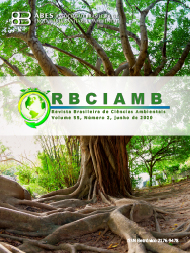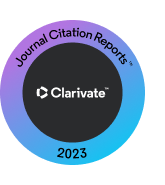BIODIESEL PRODUCTION BY ETHYLIC AND METHYLIC ROUTE BASED ON FACTORIAL DESIGN
DOI:
https://doi.org/10.5327/Z2176-947820200600Keywords:
biodiesel; transesterificação; planejamento experimental.Abstract
The analysis carried out in this research had as objective the development of a process for the bench-scale production of biodiesel. The reaction was produced by the alkaline transesterification method, in which the reagents were subjected to a temperature of 60 ± 2°C, maintaining constant mechanical agitation. From a factorial experimental design, we evaluated the maximum and minimum levels of three variables: catalyst, molar ratio, and reaction time, combining their effects without altering the response quality, verifying the yields, and interpreting the possible variations based on statistical treatments to justify which one has the best performance. As the main point, two alcohols were used, one imported (methanol) that underwent a high-quality process, and another with a large national production capacity (ethanol). The research emerges as a way to reinforce the statement that biodiesel is one of the solutions to mitigate environmental impacts and socioeconomically contribute to the country. However, the production cost is higher than that of diesel derived from petroleum; thus, ensuring the best process conditions will decrease the operational costs and the costs for the end consumer. The variable with the most influence was the amount of catalyst for the synthesis of ethyl and methyl biodiesel. However, the yields for the B2 and B8 tests did not show a significant difference at the 5% level according to the Tukey test, and the highest yield was achieved by the B7 test (97.44%), using methanol at a 1:9 molar ratio and 0.5% catalyst in 90 minutes of reaction. After the research to determine the best process conditions to promote the production and use of biofuel, we concluded that the methyl route led to more satisfactory results and higher yields.Downloads
Download data is not yet available.
Downloads
Published
2020-06-18
How to Cite
Lopes, L. F., da Silva, F. C., Simões, R. C., Pontual, L. V., de Souza, L. A., do Nascimento, L. G., & dos Santos, C. M. dos A. (2020). BIODIESEL PRODUCTION BY ETHYLIC AND METHYLIC ROUTE BASED ON FACTORIAL DESIGN. Revista Brasileira De Ciências Ambientais, 55(2), 226–241. https://doi.org/10.5327/Z2176-947820200600
Issue
Section
Articles
License
Copyright (c) 2020 Revista Brasileira de Ciências Ambientais

This work is licensed under a Creative Commons Attribution 4.0 International License.


























